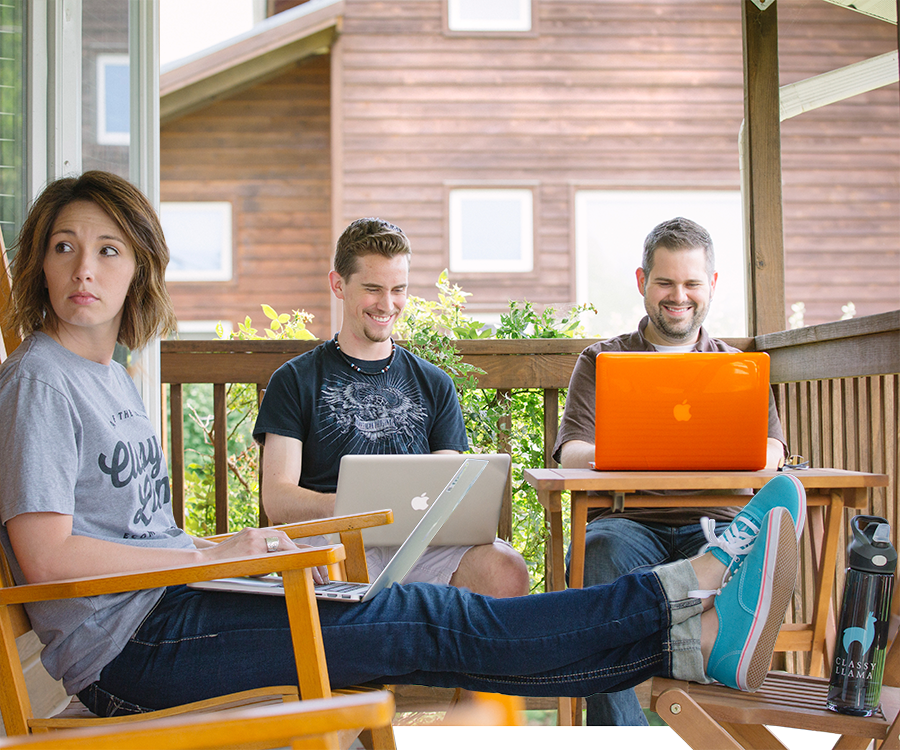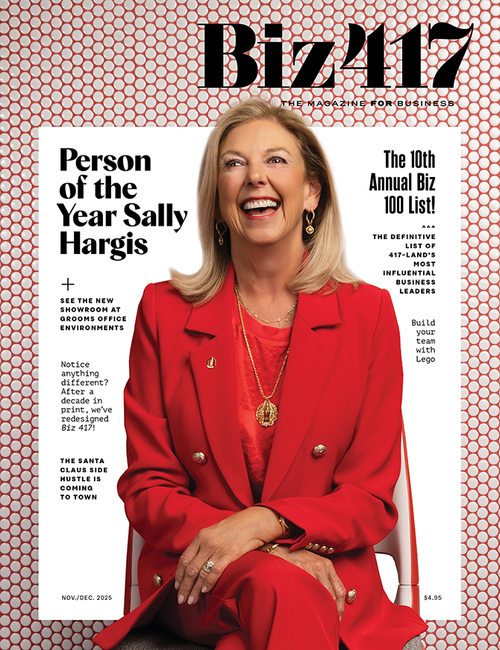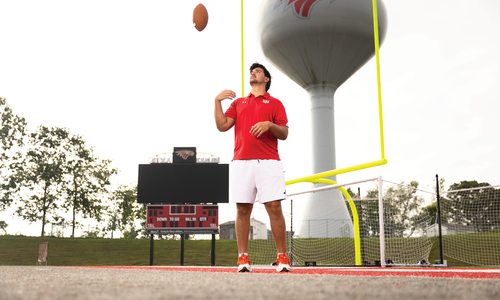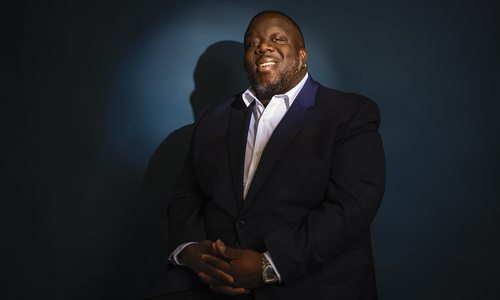
Culture
Classy Llama Culture
Classy Llama is people-centric by nature. Ultimately, though, the Springfield company’s culture comes down to its tight-knit staff and the relationships therein. Kurt Theobald, Classy Llama’s CEO, shares the ins and outs of “Classy Culture.”
By Lillian Stone | Photo by Brad Zweerink
Sep 2016

When CEO Kurt Theobald began Classy Llama in 2007, he knew his business model would be unorthodox. “In the past, I worked as a payroll employee for many different companies,” Theobald says. “And I felt very marginalized, very part of the machine, not really like a human with a soul.”
Today, the full-service e-commerce agency has more than 40 employees. But the heart of the organization lies beyond the daily grind. Theobald feels strongly that his role is not to dictate company culture, but to cultivate it like a garden, he says.
The value of relationships is apparent in Classy Llama’s day-to-day operations. Each day, the team conducts a roundup, during which one staffer updates the others on their life outside of work. Theobald feels these daily roundups help establish meaningful relationships beyond desk chatter. The team also participates in monthly community events, which allow employees and their families to meet up outside of the office. Theobald’s favorite recent event? “We played laser tag on the property,” he says. “We used all three buildings on campus. Someone got hurt. It was awesome.”
The Classy Llama team also shares its culture with others. Theobald shares words of wisdom on “how to do life” in the form of short videos. These snippets are released online four days a week and cover topics essential to a relationship-first organization, including managing risk, releasing anger and using time effectively.
Theobald is adamant that Classy Llama’s culture is not about financial gain or driving traditional business productivity. However, engagement is a huge plus. “Only about 30 percent of the workforce on an average team is fully engaged,” he says. “At Classy Llama, I think we can honestly say we have 100 percent engagement.” Theobald is also proud of the agency’s low employee turnover rate. “People find that there’s something worth staying for,” he says.
It’s important to note that a relationship-based culture is not without its challenges—for Classy Llama, those challenges included rapid company growth. “In 2015, we added 20 people to our team,” Theobald says. “When you add that many people, there’s a lot of risk to the culture.” For Classy Llama, vetting new employees on cultural grounds is the secret to creating the perfect mesh. “We really want to understand who they are, how they operate, how they think about other people and their own life and their own value,” Theobald says. He recommends going deeper than standard interview queries to get to know the heart of each potential new hire.
For those looking to improve a company’s culture, Theobald offers an essential first step: self-reflection. “Look inside yourself and ask yourself, ‘Why am I doing this?’” he suggests. In his eyes, a flashy culture with the goal of driving productivity will fail. “The culture is not the means to the end,” he says. “The ultimate objective is the improvement and progress of the individuals on the team.” Theobald feels that a company’s focus should lie in the soul of the company’s mission. “The highest priority is not staying in business,” he says. “The business is not worth compromising who we are.”












